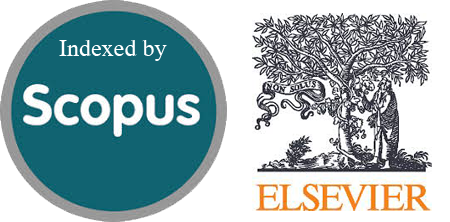Aiming for the Future: Transforming Social Studies Learning in Elementary School into the 21st Century
DOI:
https://doi.org/10.14421/skijier.2023.72.06Keywords:
Transformation, Social Science, 21st CenturyAbstract
The purpose of social studies learning is for students to become sensitive to problems that arise both within themselves and in their social environment. Social studies learning must adapt to face the challenges of the 21st century, Social studies education has significant relevance to 21st century skills; 1) Global Understanding, 2) Critical Thinking Skills, 3) Communication Skills, 4) Problem-Solving Ability, 5) Global Citizenship, 6) Technology and Media Literacy and, 7) Collaboration Skills. Thus, social studies not only provides an understanding of historical facts and social reality, but also forms skills and attitudes that are in accordance with the demands of the changing world in the 21st century.
References
Bank, J. A., Strategi Ilmu Sosial Pendidikan dan Pengambilan Keputusan. Bandung: Mutiara Press, 2012.
Dwyer, C. P., Hogan, M. J., & Stewart, I. “An integrated critical thinking framework for the 21st century”. Thinking Skills and Creativity, (2014). 12, 43–52. https://doi.org/10.1016/j.tsc.2013.12.004
Heafner, T. “Using technology to motivate students to learn social studies. Contemporary Issues in Technology and Teacher”, (2004). 4(1), 42–53. Retrieved from http://www.citejournal.org/vol4/iss1/socialstudies/article1.cfm
Kaufman, K. J. “21 Ways to 21st Century Skills: Why Students Need Them and Ideas for Practical Implementation”. Kappa Delta Pi Record, (2013). 49 (2), 78–83. https://doi.org/10.1080/00228958.2013.786594
Nganga, L. “Preservice Teachers’ Perceptions and Preparedness to Teach For Global Mindedness and Social Justice Using Collaboration, Critical Thinking, Creativity and Communication (4cs)”. Journal of Social Studies Education Research, (2019). 10(4), 26–57. Retrieved from https://jsser.org/index.php/jsser/article/download/1262/407
Sapriya. Pendidikan IPS: Konsep dan Pembelajaran (8th ed.). Bandung: PT. Remaja Rosdakarya, 2017.
Schoenfeld, A. H. “Looking Toward the 21st Century: Challenges of Educational Theory and Practice”. Educational Researcher, (1999). 28 (7), 4–14. https://doi.org/- 10.3102/0013189X02800700
Turiman, P., Omar, J., Daud, A. M., & Osman, K. “Fostering the 21st Century Skills through Scientific Literacy and Science Process Skills”. Procedia-Social and Behavioral Sciences, (2012). 59, 110–116. https://doi.org/10.1016/j.sbspro.2012.09.253
Van Laar, E., van Deursen, A. J. A. M., van Dijk, J. A. G. M., & de Haan, J. “The Relation Between 21st-Century Skills and Digital Skills: A systematic Literature Review”. Computers in Human Behavior, (2017) 72, 577–588. https://doi.org/10.1016/j.-chb.2017.03.010
Velez, A. (2012). “Preparing Students for the Future – 21St Century Skills (Southern California)”.http://digitallibrary.usc.edu/utils/getfile/collection/p15799coll3/id/26131/filename/26012.pdfpage/page/1
Wiriatmadja, R., Buku Ajar Filsafat Ilmu Relevansinya dengan Pendidikan IPS. Bandung: Rizqi Press. 2015.
Z. Mestika. Metode Penelitian Kepustakaan. Jakarta: Yayasan Obor. 2014.










